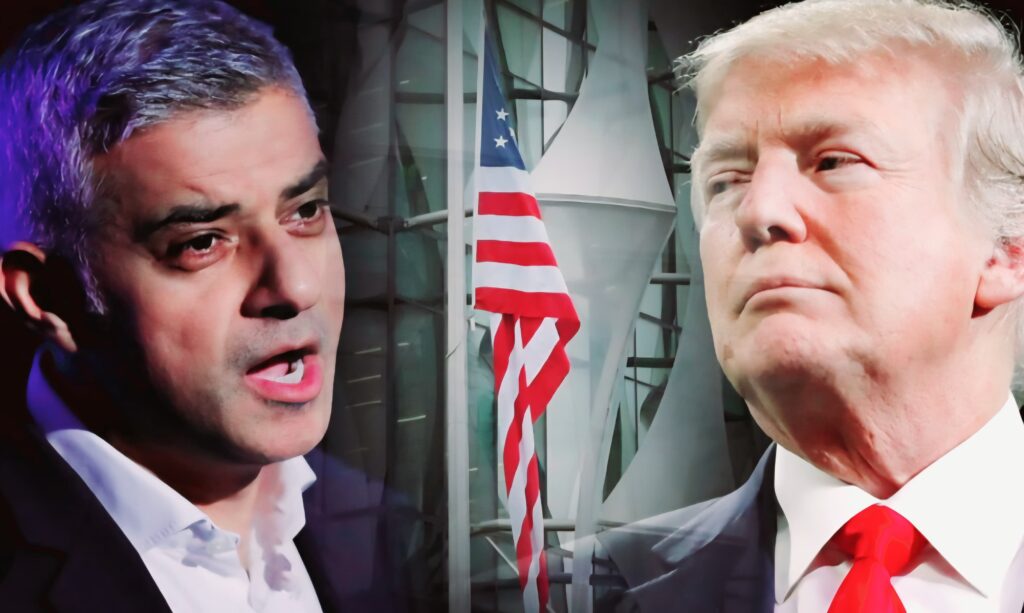By: Engineer Bakht Said Yousafzai
U.S. President Donald Trump delivered a fiery and controversial speech at the United Nations on September 23, 2025, leaving world leaders, diplomats, and the global media stunned. Speaking at the 80th session of the UN General Assembly, Trump addressed multiple issues with blunt rhetoric, targeting NATO, Europe, climate policy, and Middle Eastern diplomacy.
One of the most contentious parts of Trump’s speech was his criticism of NATO and its handling of Russia. He suggested that member countries should adopt a more aggressive stance, even implying that NATO should consider shooting down Russian aircraft if deemed necessary. Analysts warned that such remarks could heighten tensions between NATO and Russia, potentially destabilizing an already volatile geopolitical environment.
Trump also directed sharp criticism at European leaders, claiming that their immigration policies were causing their nations to decline. He stated that Europe and the United Kingdom were “going to hell” due to the influx of migrants, accusing leaders of “destroying their heritage” by allowing uncontrolled immigration. European officials and human rights organizations immediately condemned these comments, emphasizing the complexity of migration and the importance of balanced, humane solutions.
In addition, Trump dismissed climate change as a “con job,” labeling it the “greatest con job ever perpetrated on the world.” He criticized global renewable energy initiatives and the Paris Climate Agreement, arguing that these policies were economically damaging and ineffective. Environmentalists and scientific communities responded with alarm, warning that ignoring climate science threatens the planet’s future.
Trump further addressed the Israeli-Palestinian conflict by rejecting the notion of Palestinian statehood. He warned that recognizing a Palestinian state would “embolden Hamas” and undermine peace efforts. This stance drew criticism from diplomats and international organizations advocating a two-state solution as a pathway to lasting peace.
Throughout his speech, President Trump questioned the effectiveness of the United Nations itself, accusing the organization of promoting a “globalist” agenda that undermines national sovereignty. He suggested that UN policies are detrimental to member states and called for reforms to realign the organization with the priorities of individual nations.
Global reactions to Trump’s speech were mixed. Some leaders supported his views, particularly his stance on NATO and immigration, while many others condemned the rhetoric as divisive and unhelpful. Analysts warned that inflammatory statements could hinder international cooperation on pressing issues.
In the United States, the speech sparked intense debate. Supporters praised Trump’s forthrightness and his willingness to challenge international norms. Critics argued that the rhetoric could isolate the U.S. from its allies and damage its global standing. Social media quickly became a battleground of opinions, with hashtags like #TrumpUNSpeech and #CountriesGoingToHell trending worldwide.
The speech’s NATO remarks raised alarms among military experts, who cautioned that advocating potential military action without consultation could escalate tensions dangerously in Eastern Europe. Diplomats stressed the need for careful dialogue and strategy when addressing Russia’s military actions.
Trump’s dismissal of climate change also triggered immediate backlash. Hundreds of scientists released statements condemning his remarks, emphasizing that ignoring climate science jeopardizes the planet and undermines decades of collective global effort.
European leaders reacted strongly to Trump’s migration commentary. Some viewed his statements as overly simplistic and damaging to the perception of Europe’s policies. Far-right groups, however, seized upon the speech to reinforce anti-immigration narratives, increasing social tensions.
The former president’s Middle East remarks complicated ongoing peace discussions. By rejecting Palestinian statehood outright, Trump’s comments were seen as undermining diplomatic channels and long-term solutions in the region. Experts warned that unilateral statements risk inflaming tensions further.
Media coverage of the speech was instantaneous. Conservative outlets praised Trump for “speaking the truth,” while liberal media labeled the remarks “reckless” and “dangerous.” Late-night television quickly turned the address into viral segments, amplifying the public discourse.
The United Nations itself was visibly divided. Some delegates applauded Trump’s directness, while others expressed concern over potential fallout. Analysts noted that such polarizing rhetoric could complicate consensus-building on critical issues like security, climate, and humanitarian assistance.
Social media platforms became a hub of debate. Memes, parodies, and viral clips circulated rapidly, reflecting both support and criticism. Experts highlighted the amplified effect of social media in shaping global perceptions and public opinion.
Within the United States, the political implications were debated fiercely. Some strategists argued that the speech would energize Trump’s voter base ahead of future elections, while others warned it might alienate moderates and strain U.S.-Europe relations.
The speech highlighted the ongoing tension between nationalist policies and global cooperation. While Trump emphasized sovereignty and unilateral action, analysts stressed that complex global challenges such as climate change, security, and migration require collaborative solutions.
Observers noted that Trump’s UN speech represents a bold attempt to shape international discourse on his terms. From his aggressive stance on NATO to his dismissal of climate science, the address has reignited global debates on leadership, diplomacy, and international responsibility.
Donald Trump’s UN speech has left an indelible mark on global discussions. Whether viewed as candid and assertive or reckless and divisive, the speech has reignited debates about migration, security, climate policy, and international cooperation. The international community will continue to grapple with its implications for months to come.



